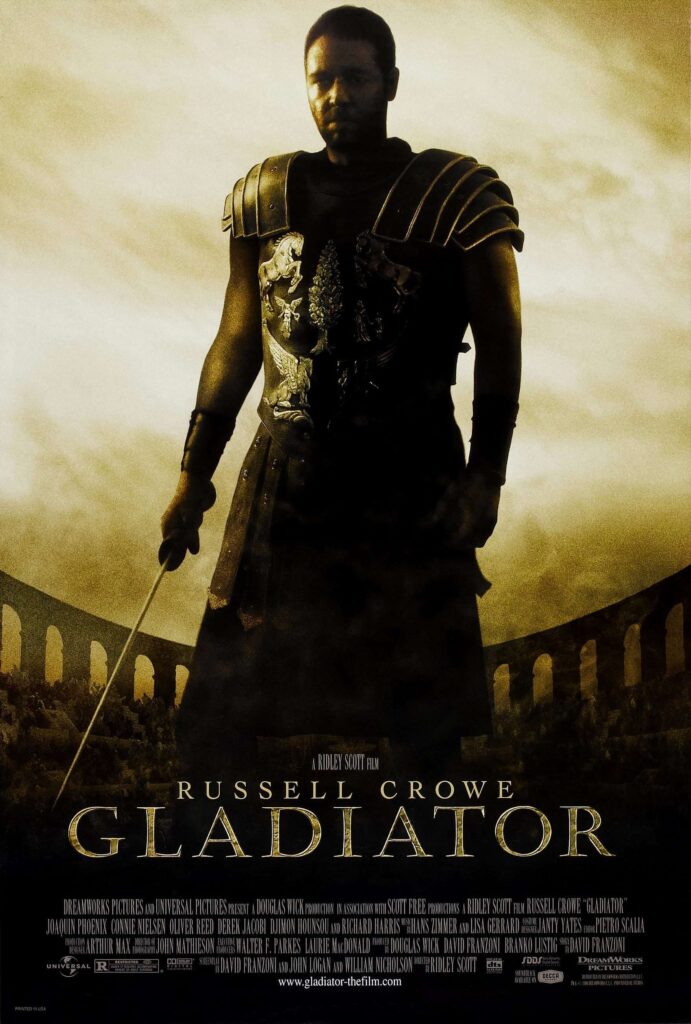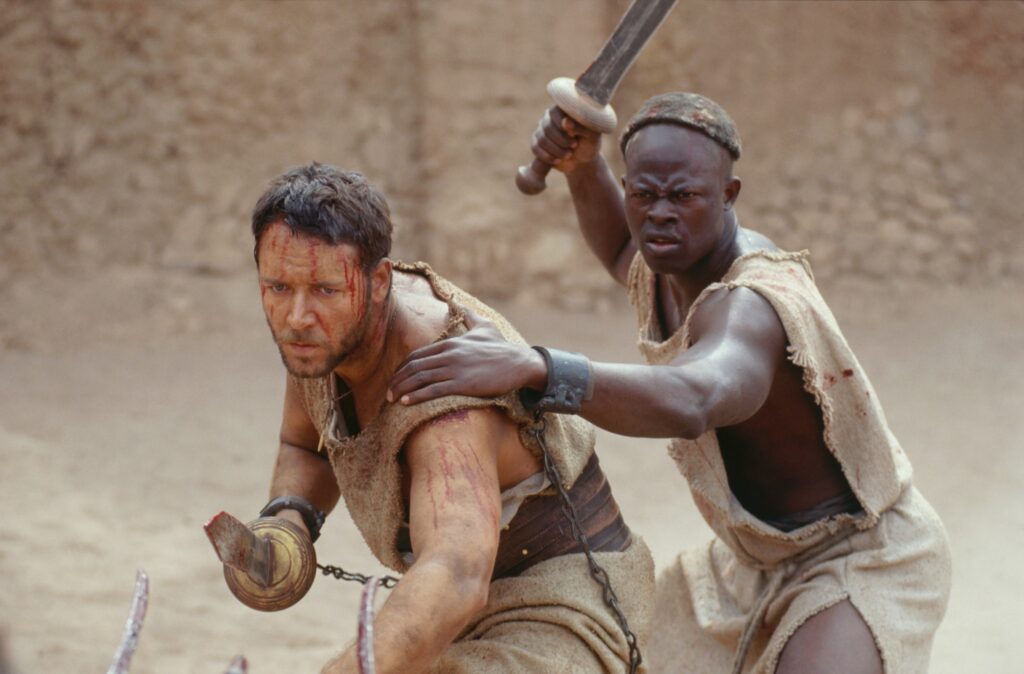Gladiator Christian Review

Now look, Gladiator is a next-level movie, no doubt. Russell Crowe played the role of Maximus as if it was written for him. Extremely powerful – a big general in the beginning, then betrayed, then came down to earth, and then is literally fighting in the dust. Betrayal, revenge, emotions, you will find everything. But if you look at it from a Christian lens, you will have to think a little. On one hand there are deep themes, on the other hand full-on brutality.
Characters like Maximus are rare. A very solid man- a man of dignity, he fights for justice, he doesn’t give up his values, even if the world destroys him. Is all this sounding familiar? Yes, even Bible heroes are like this- they stand up for what is right, even if the world turns against them.
And this concept of afterlife? Bro, this man is very strong. Maximus repeatedly says that he will meet his wife and son. And finally he does meet them. When he is walking down the street, he gets literal goosebumps. He gives a completely heavenly vibe. There is something after this world too, this thought keeps running throughout the film.
Then there is a scene in which Maximus forgives a defeated enemy, but doesn’t kill him. This moment feels heavy—like Christ. To use the power correctly even after having it, to focus more on humanity than revenge—that’s deep.

And Commodus? I mean, such a bad villain has been written that one just feels disgusted. He is not just bad, he is evil—cruel, manipulative, has strange intentions with his own sister… uff, this character shows complete moral decay. The whole of Rome seems like a corrupt empire, where it’s all darkness. There’s nothing uplifting.
What do you mean, friend, so much violence? It’s a bit too much. This is not just about the action in the fight scenes, this is of literal gore level—swords inside, blood flowing, people are dying. Okay, Rome was like that, but one thing to think about is that do we find this funny? It is clearly mentioned in the Bible that vengeance is God’s work, not ours (Romans 12:19). But this movie is entirely based on this—revenge. A full-blown revenge story. So whether this story is morally justified or not, it is just a bit complicated.
Watch it, Gladiator is a masterpiece, no doubt. Acting, music, cinematography—all top-notch. And if you don’t have any issues with the violence, you’ll find a lot of Christian values in it—justice, perseverance, faith in the afterlife. But if you’re looking for a story of redemption, grace, or forgiveness, then sorry bro, this movie wasn’t made like that. This is a world of revenge, here things only matter.
So, the final decision? If you don’t have a problem watching bloodshed, then it’s a great movie. But if you watch it on the basis of biblical morals, then watch it with a little thought.




